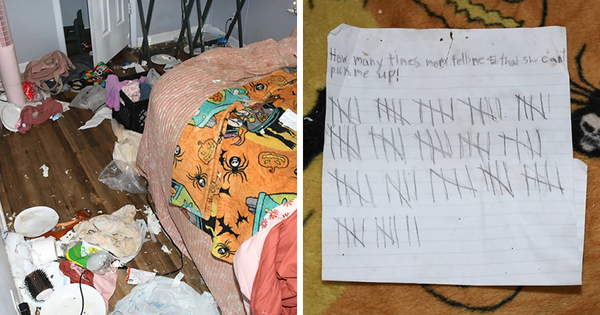
Chris Lewis writes: Anthony Albanese assured us numerous times that he would transform Australia’s embarrassing and inhumane refugee-asylum seeker policy if elected. But there’s no sign of that yet (“Labor’s refugee treatment is inhumane, hypocritical, and a relic of the Liberals”). If Labor can’t be bothered and opts to keep our regrettable offshore detention centres it will become a very costly political and social failure for the party that is supposed to care.
Adrian Walker writes: When he was in opposition, Albanese correctly read the mood of the Australian people as being more compassionate and promised more humane treatment of people seeking asylum. The boat turnback policy has reduced the numbers coming by sea so people smugglers now use air traffic — making for a manageable flow of refugees. The way is open for Labor and the crossbench to remove the nagging uncertainty that plagues the lives of the 19,000 people who are fighting the threat of deportation to the dangerous place they sailed from.
The compassionate mood of the nation has evolved even further and Labor is in danger of losing its core of voters who support a more humane Australia. Whether Labor is guilty of hypocrisy or blindness, Albanese needs to listen to the voices of the many Australians who are happy to welcome families escaping persecution, rape and fear.
John Peel writes: It is unbelievable that so many of the people Behrouz Boochani writes about, whether detainees in Port Moresby and Nauru or refugees in Australia, are still being punished 10 or so years later for the temerity of arriving by boat rather than by air.
Oliver Mayo writes: Boochani is right. Inhumane policies are being continued by the ALP government. The tone of the Albanese government’s discussions on refugees is less ghastly, and there have been some improvements, but the basic inhumane policies continue.
Tim Stephens writes: Refugees. It seems to be an unending and unfixable problem. But why? Because the world in general keeps attacking the problem from the wrong end. We spend billions of dollars dealing with people who have fled from hideous situations. Even in Europe where refugees are generally treated a bit better, they spend big to try to resettle and house people. However, the real problem is why they flee. This is what needs fixing and is where we should be directing the billions of dollars: overpopulation; climate change; feral, corrupt administrations; religions.
It will take time but if we don’t start it will just continue and worsen.
David Short writes: If these desperately unhappy people have been cleared by federal immigration and aren’t a threat to our lifestyle, let them stay — $420 million would be better spent on settling them, thus adding to our workforce and tax system.
Fear politics is not the solution. Open minds and hearts are. As an added note: l came here more than 50 years ago and before that — after the war — so did many others. We need more diversity in society and not exclusion.
Pamela Curr writes: Giving permanent visas to 19,000 refugees is only fair when you consider that they were denied the right to apply for a process for three to five years. It’s called “lifting the bar” and only the minister can do it. This leaves another 12,000 people still hoping through a process after waiting 10 to 12 years. Imagine a government department taking 12 years out of your life. Some have no work rights, no study allowed and no income. These are truly destitute but for the kindness of church and community groups.
Then there are 1200 refugees from Manus and Nauru living in Australia with no future. We see the abysmal cruelty towards First Nations peoples in Australia and then see the pattern of abuse repeated towards refugees. First and last peoples singled out for denial of human rights. What’s wrong with us?
Laboring a point
Jim Breen writes: In “The rise of New Labor and the politics of contempt” Maeve McGregor poses two scenarios: the received wisdom is that the general smallness and lack of ambition visible in Labor’s agenda on issues such as tax, welfare, climate change and, dare I say, even integrity, are symptoms of timidness; second, this is New Labor, a party that has not so much drifted as consciously stepped to the right and in so doing has abandoned basic fairness as an organising principle in many of the most fundamental areas of government policy.
I think this is mostly twaddle. The bitter experience of the past decade has been that Labor has been wedged so often by the bullies of the right and their mates in big business that any attempt to be genuinely progressive simply opens them up to merciless well-funded assaults and eventually assigns us to more of the Abbott/Morrison treatment. There are many things I would like Labor to do but I totally understand and accept its caution. Journalists so often forget that oppositions can rarely actually achieve anything.
Times have changed
Chris Henning writes: The Liberal Party talks about its philosophy, but it doesn’t really have anything coherent enough to be called that (“How did Australia’s conservative movement lose its way?”). At any given moment its members hold a range of views about different issues — the economy, the role of government, individual liberties and so on — which are more or less consistent, applicable to current circumstances, and popular, or at least inoffensive, for Australia’s managerial and professional classes: the groups that used to form the party’s backbone, and whose vague, unengaged support and approval once gave the party momentum, confidence and authority.
These views move with the times so that the party’s programs can remain relevant. What Robert Menzies meant by liberalism is not what John Howard meant by it. What he meant is not what Tony Abbott or Scott Morrison meant. An American writer referred to the US Republican Party’s philosophy as a vibe. It fits what Liberals think of as their philosophy, too. The Liberal vibe is mostly strong and clear when the party is in power; out of office it becomes fuzzy and indistinct as different factions fight each other to control the agenda.
When Malcolm Fraser lost power he also lost intellectual authority — even though his brand of centrist, pragmatic, relatively big-government Liberalism represented a strong tradition within the party. By the mid-1980s, that vibe was no longer capable of solving the problems it had created, and so it had fallen out of fashion. A new vibe, neo-liberalism, let’s call it, had taken over. To use someone else’s phrase, every pet shop galah at that point was talking up privatisation, smaller government and market forces. That new vibe, being in line with Liberal instincts, was relatively easy for the party to adopt to refresh itself after its 1983 defeat. It, in turn, has been progressively implemented to varying degrees by governments of the left and right ever since — to the point where now we are dealing with its consequences. Those range from the relatively trivial — higher prices for privatised services — to the dangerous — the housing crisis, the generational divide, and the corruption and abandonment of the ideas of public interest, public service and public duty in our democracy — to the truly frightening and catastrophic: climate change.
The solution to the problems that neoliberalism created will require a new vibe, a new program. But unlike in the 1980s, this is likely to require many measures that will run directly counter to Liberal instincts — towards a larger role for government. That is the danger for the party: its long domination of the agenda has created problems that no new vibe it can easily adopt is likely to solve. Unprecedented teal victories in the Liberals’ heartland show that voters in seats where Australia’s best educated, most ambitious and most established citizens live no longer believe the party has answers to contemporary problems. Having carefully and thoroughly driven out its moderates from the 1980s on, the party is now a haven for right-wing extremists still stuck in 1980s ways of thinking — ways that create today’s problems, not today’s solutions. If this persists, the party may be headed for irrelevance.
Hungry for news
Gary Shepherd writes: Centrist journalism isn’t the way forward — it would be my view that most people wouldn’t know where the centre is (“News start-up Scire plots raid of Nine newspaper talent”). Especially Americans. Apart from a few individuals in the Democrats, the left side of politics is almost non-existent.
The way forward is ethical journalism. If someone is put forward as an “expert” on a subject, people should be given some background on who or what they represent. Is there a conflict of interest? Are they being represented accurately? For example, “a world-renowned scientist on climate” or “A divisive figure, not recognised as an expert in anything and unlikely to be employed in any legitimate scientific research due to associations with organisations not upholding standards”.
Ethical journalism would condemn those who deliberately spread false information. “Social commentators” would be separated from “news”. The difference between the two, explained before the commentary starts. Fines for “infomercials” not being adequately signposted. You start off with a presumption that “news” is an accurate description of what has occurred. That can be difficult sometimes but you need the conviction to get it right. If mistakes are made then so be it. Let them be honest ones. Not manufactured fairy tales.
Cry this broken country
Dr Gideon Polya writes: There is massive media coverage of hundreds of thousands of Israelis demonstrating for judicial independence and asserted “democracy” (“Netanyahu’s plans are a direct and unsubtle assault on democracy”). However, resolutely ignored by the taxpayer-funded ABC and SBS are that (a) the demonstrations are in towns and villages ethnically cleansed of circa 800,000 Indigenous Palestinians 75 years ago in the genocidal 1948 Nakba (Catastrophe), and (b) of the circa 16 million mainly impoverished Indigenous Palestinians today, 8 million are exiled Palestinians excluded from their own country, 5.5 million are occupied Palestinians under violent foreign occupation (cf Ukraine) and deprived of all human rights specified by the Universal Declaration of Human Rights, and 2 million are Israeli Palestinians who can vote for the government ruling them albeit as third-class citizens under 60 Nazi-style, race-based discriminatory laws.
As an anti-racist Jewish Australian humanist and taxpayer I utterly condemn (a) the appalling crimes of democracy-by-genocide apartheid Israel, and (b) the egregious omission by the ABC and SBS.







